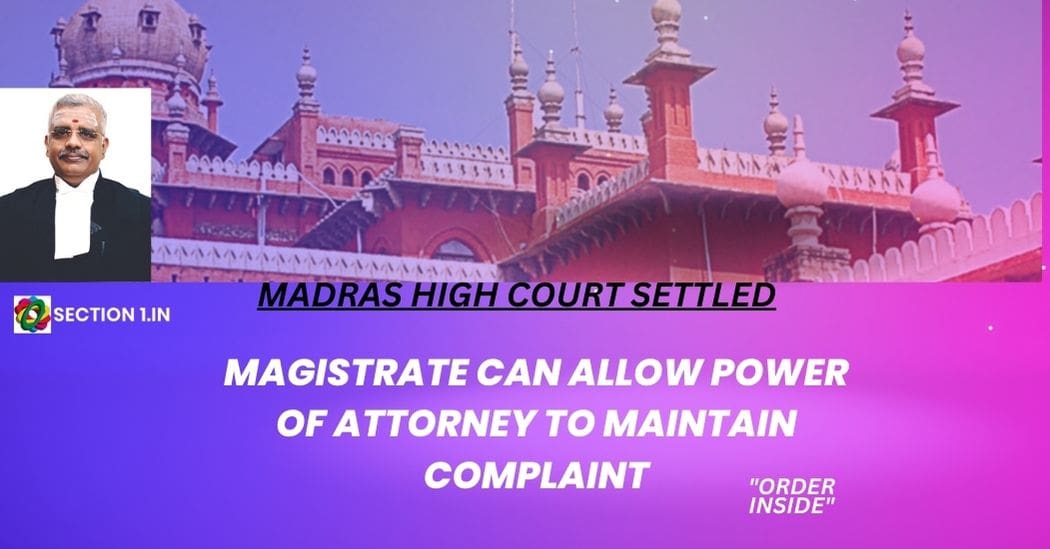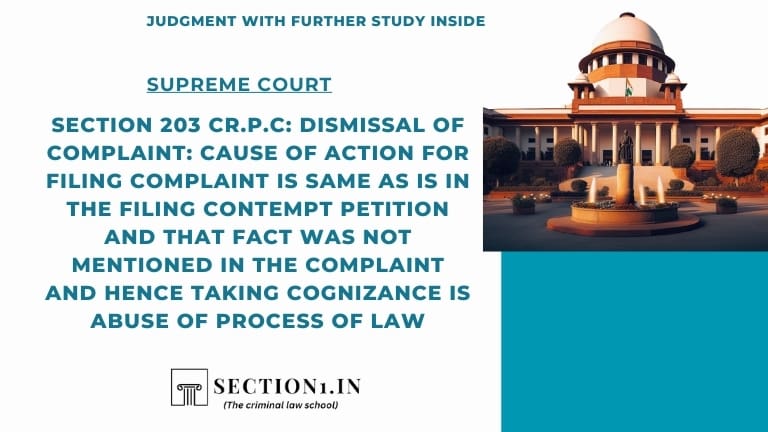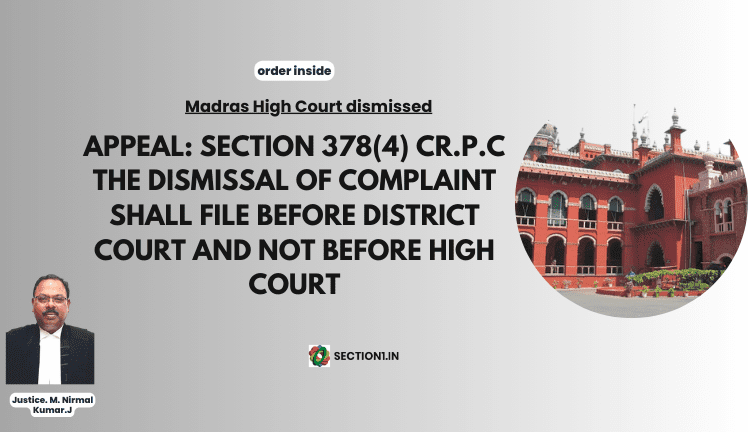Complaint dismissed by the Magistrate that the power of attorney cannot maintain the complaint
- The respondent filed a private complaint against the petitioners and two others on the ground that they have committed various offences under Section 120(b), 405, 406, 418, 420, 464, 466, 467, 468, 471, 474 and 477 of IPC. To substantiate the same, certain allegations were also made in the complaint. The respondent was represented by her husband, who is the Power of Attorney agent. Hence, the sworn statement of the Power of Attorney agent was recorded and ultimately, the learned Judicial Magistrate II, Chidambaram, by order dated 09.02.2015 dismissed the complaint mainly on the ground that the Power of Attorney agent cannot maintain the complaint.
-
Aggrieved by the order passed by the learned Judicial Magistrate, the respondent filed a Criminal Revision Petition before the Principal Sessions Judge, Cuddalore. The learned Sessions Judge on going through the materials placed before the Court and on considering the findings of the Trial Court, came to a conclusion that the Power of Attorney agent can certainly maintain a private complaint. However, insofar as the merits of the case is concerned, the learned Sessions Judge, left it to the learned Magistrate to deal with the same on its own merits and in accordance with law and directed the Magistrate to take a decision with regard to taking cognizance of the complaint based on the satisfaction of the Magistrate.
…
Madras high court uphold the order of the sessions judge setting aside the dismissal order of the Magistrate u/s 203 Cr.P.C
- In the considered view of this Court, the complaint was dismissed under Section 203 of Cr.P.C. This is in view of the fact that the learned Magistrate held that the complaint cannot be maintained through a power of attorney agent. This portion of the order has been set aside by the Sessions Court and this Court does not find any illegality in the order passed by the Sessions Judge.
Role of the accused starts only after summons issued u/s 204 Cr.P.C
- The role of the accused persons to get into the scene will arise only after the process is issued under Section 204 of Cr.P.C. Till then, the accused persons will not have the locus standi to appear and make their contentions. Admittedly, in this case, the complaint has not reached the stage under Section 204 of Cr.P.C. That apart, the Sessions Judge while allowing the Criminal Revision, has made it absolutely clear that it is left to the learned Magistrate to decide on the issue of taking cognizance of the complaint based on the materials placed before the Court and the Sessions Court has not given any positive direction to the Magistrate to take cognizance and issue process. In view of the same, the complaint is at the stage of taking cognizance and the learned Magistrate based on the materials may either dismiss the complaint under Section 203 of Cr.PC or issue process under section 204 of Cr.P.C. Only after the process is issued, the accused persons will have a role to play and till then, they need not respond.
Taking cognizance by the magistrate can be done strictly based on the materials placed before the court
- In the light of the above discussion, this Court does not find any ground to interfere with the order passed by the Principal Sessions Judge, Cuddalore and the learned Magistrate, shall take note of the clarity given by the learned Sessions Judge at Paragraph 10 of the order and decide on the issue of taking cognizance of the complaint strictly based on the materials placed before the Court by the complainant. The order passed by the learned Sessions Judge, will confine itself only to the maintainability of the complaint filed by a Power of Attorney agent.
PARTY: Mr. M.Jayakumar vs. Mrs. P. Malathi – Crl R.C No: 17 of 2018 – 30.03.2023
https://www.mhc.tn.gov.in/judis/index.php/casestatus/viewpdf/1036838






